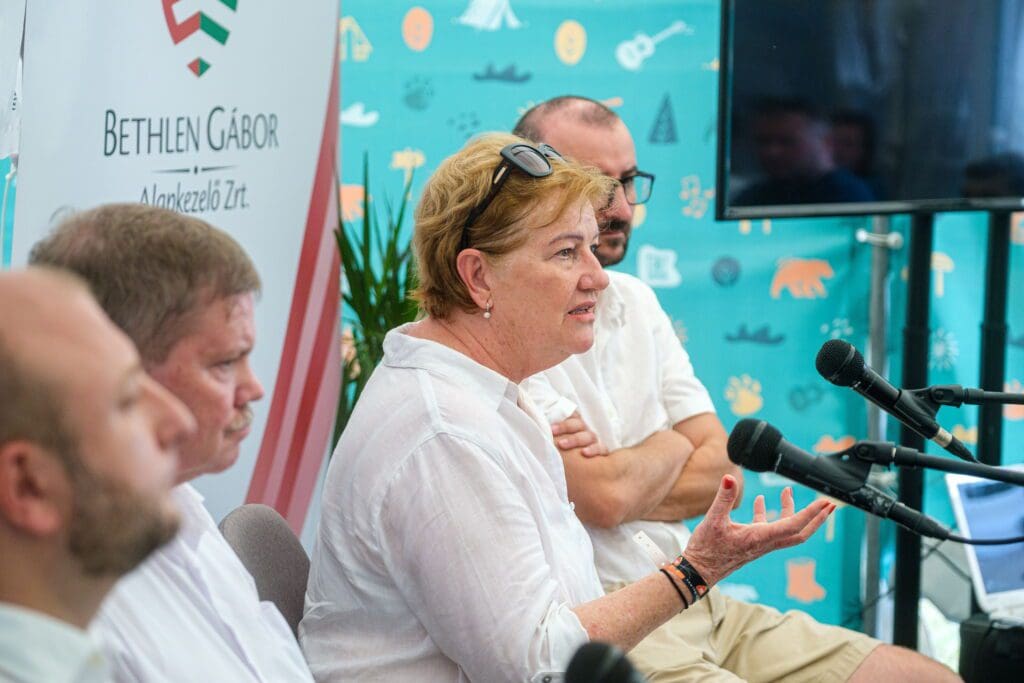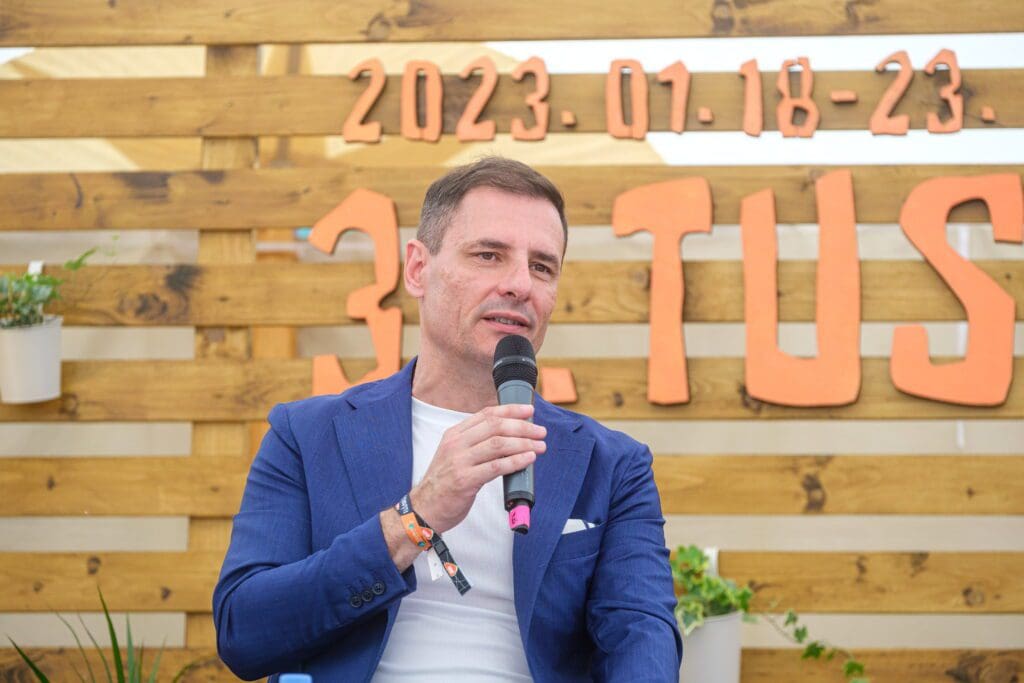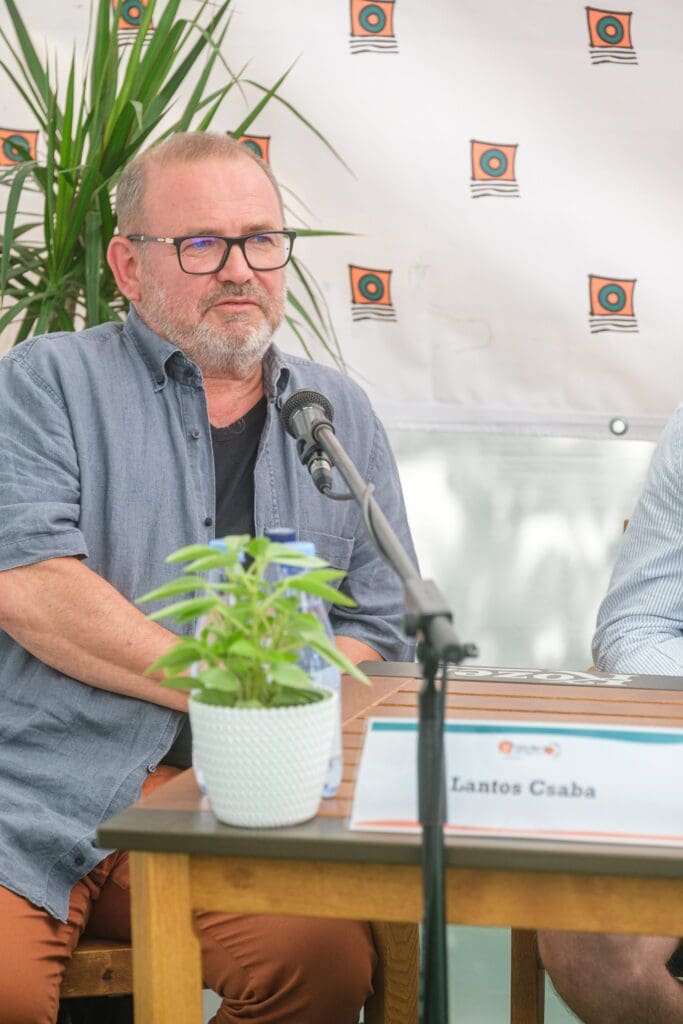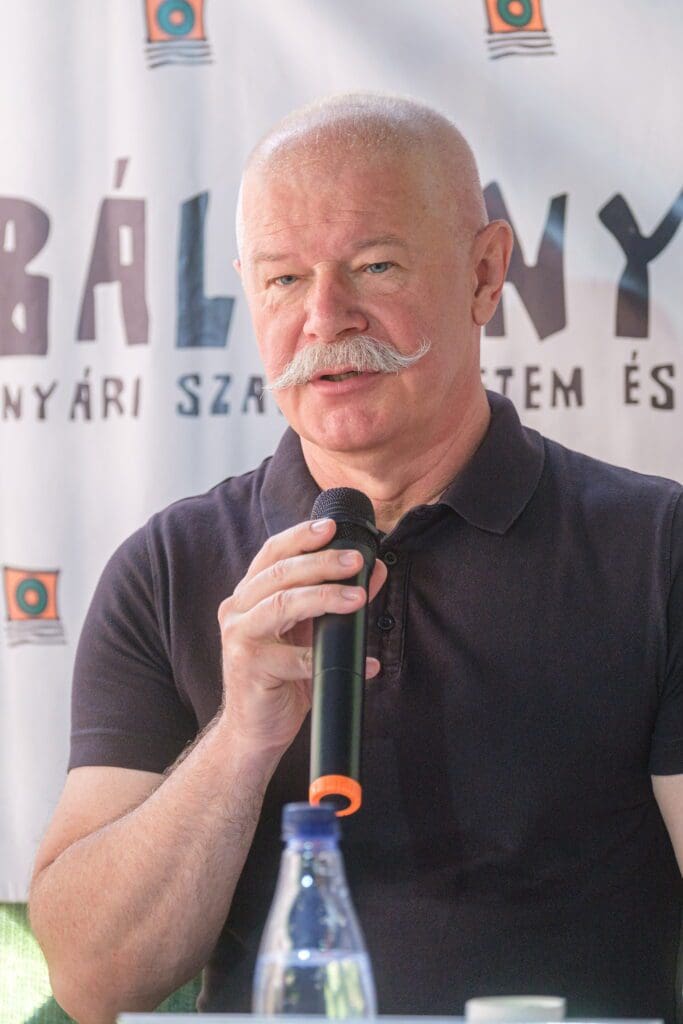The second day of Tusványos started in full force, with many prominent Hungarian government officials taking the opportunity to share their thoughts on stage. What follows is a brief recap of the most important points they made.
Tibor Navracsics
‘Universities are no longer just theoretical research centres, nor ivory towers of knowledge, but institutions that increasingly need to become involved in the economic, scientific, and cultural life of the region,’ Minister for Regional Development argued Tibor Navracsics argued in Tusnádfürdő on Thursday.
During the panel discussion titled ‘The Role of Universities in Regional Development,’ Tibor Navracsics highlighted that his ministry seeks to establish strategic partnerships with universities to promote the development of various regions. He explained that universities need to possess specific knowledge relevant to the respective regions, which can be beneficial for investors from a practical perspective and can also contribute to strategic planning.

Katalin Szili
According to Katalin Szili, the Prime Minister’s chief advisor on the autonomy issues of cross-border Hungarian communities, the cause of national minorities, including the Hungarian community in Transcarpathia, has taken a ‘huge downturn’ in Ukraine. She emphasised that
the war does not entitle Ukraine to restricting minority rights,
nor does it exempt the country from fulfilling the accession requirements set by the EU for candidate states. The chief advisor was one of the panellists of the discussion titled ‘Minority Rights in War and Peace’. In her statement to MTI, she stressed that while peace-making is undoubtedly of paramount importance, if moving closer to the EU is important for Ukraine, it must fulfil all the requirements imposed by the EU on all other candidate countries.

Bence Tuzson
Incoming Justice Minister Bence Tuzson emphasised that the European Union will be stretched to its limits if Brussels attempts to dictate legislation. He argued that such a process will lead to member states not complying with EU decisions. He pointed out that the EU is trying to impose its will on nation-states through stealthy legislation, the loosening of legal concepts, and holding countries accountable on the basis of the ambiguous concept of the rule of law, while seeking to impose European law through judicial means, overriding national laws. However, he highlighted, EU law can only prevail if it is not in conflict the nation state’s constitution, and therefore, the Constitutional Court can put a stop to ‘this harmful tendency.’

Csaba Lantos
Energy Minister Csaba Lantos spoke about the security of both electricity and gas supply in Hungary. When asked whether Hungary’s energy supply is secure, the minister confidently answered it is. He explained that in the past 12–13 years, the high-voltage power transmission system has been developed, ensuring a continuous and guaranteed energy supply. He mentioned that there are times when Hungary can already be supplied with electricity solely from solar panels, and there are hours when the country is completely carbon-neutral. Regarding gas supply, he highlighted that the country has a stable and robust gas network, and except for Slovenia, Hungary is interconnected with all its neighbouring countries through two-way compressors and pipelines, enabling both import and export. He stated that efforts are being made to increase the share of other energy sources, such as solar energy, geothermal energy, biomass, and biogas, in the future. He also reminded that regaining control of Hungarian energy companies by the government was ‘a key element for energy security.’

János Csák
‘Culture builds communities because it is not only about paintings and musical compositions but also includes the spoken, sung, and danced native language, which creates a sense of community,’ Minister of Culture and Innovation János Csák declared at the festival.

During the discussion titled ‘The Cradle of Culture and the Culture of the Cradle — Passing on Cultural Values, Possibilities for Strengthening National and Cultural Identity in Families,’ in which he participated alongside the President of the National Association of Large Families, Katalin Kardos-Gyurkó, Csák emphasised the community-building power of culture. He pointed out that culture builds, encourages, and consoles, and furthermore, a cultivated individual contributes more to the GDP by being capable of handling more complex tasks. He also drew attention to the richness of Hungarian culture, which can be accessed in any life situation for comfort and encouragement.
Read more:
Source: Hungarian Conservative/MTI







